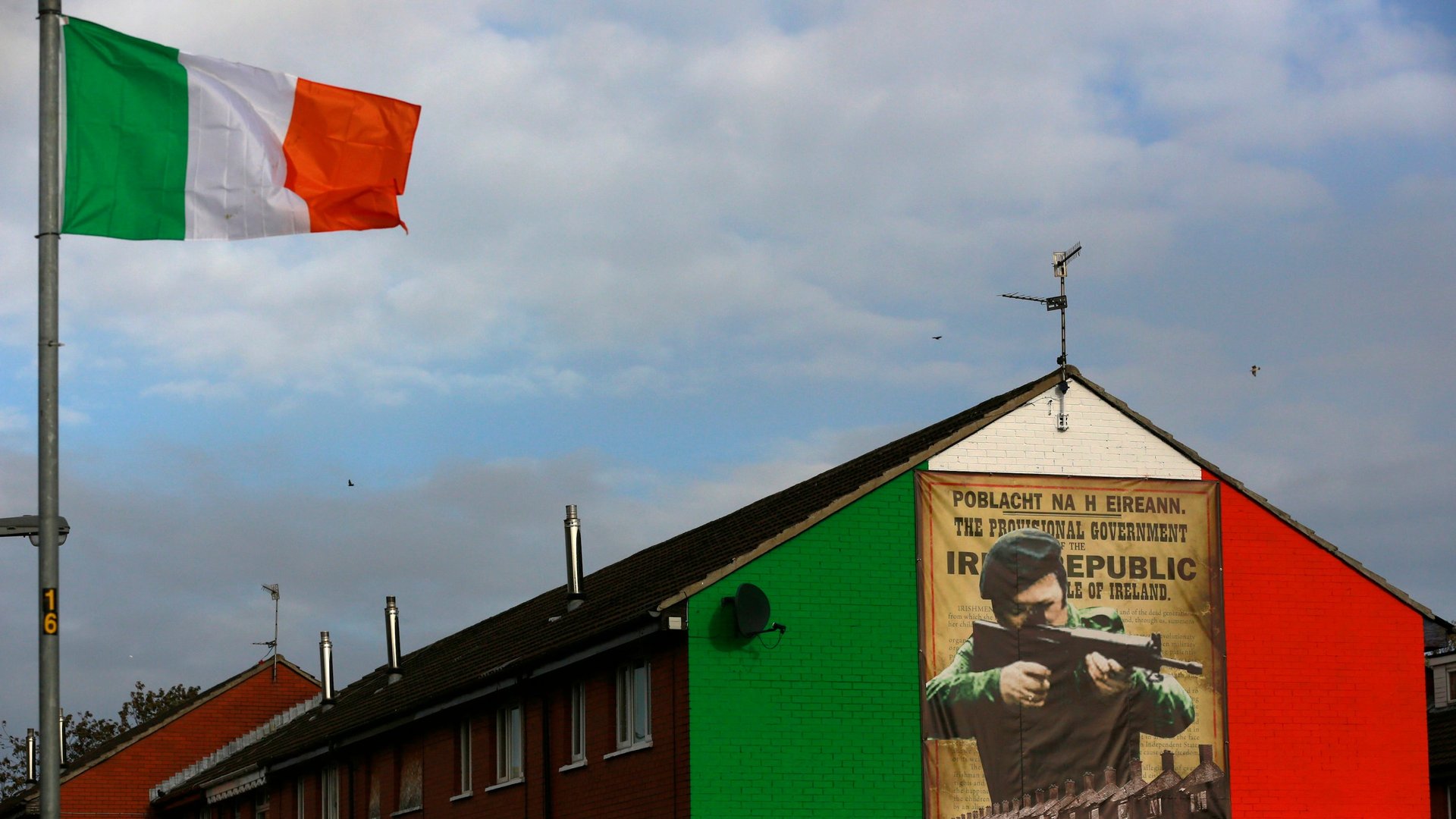With Brexit, the English voters who hated the IRA have handed it the ultimate victory
For many years now, the border between Northern Ireland and the Republic of Ireland has been virtually invisible. Free travel between the two countries, facilitated by European Union membership, has allowed for quick and easy trade as well as transnational employment, with some British and Irish workers commuting daily across the border to work.


For many years now, the border between Northern Ireland and the Republic of Ireland has been virtually invisible. Free travel between the two countries, facilitated by European Union membership, has allowed for quick and easy trade as well as transnational employment, with some British and Irish workers commuting daily across the border to work.
With Britain voting to exit the EU, the future of the border is unclear. Some politicians have speculated that a physical border, like that which was in place until 1998, could be re-erected, disrupting the lives of those in and around the border region. As such, Northern Ireland’s deputy first minister Martin McGuinness is calling for a border poll on the reunification of Ireland, citing strong support for the EU across Northern Ireland.
“Effectively, English votes have dragged us out of Europe,” McGuinness told reporters on Friday (June 24). “Our case for a border poll is strengthened by the outcome of this vote.”
McGuinness is a member of Sinn Féin, a left-wing Irish nationalist party that has long advocated for the reunification of Ireland. He is also a former leader of the Provisional Irish Republican Army (IRA)—a paramilitary organization that sought to unite Ireland by force during the bloody, late-2oth century sectarian conflict known as the Troubles. (Northern Ireland receives significant financial support from the EU in the form of “peace money,” which funds projects related to maintaining the 1998 Good Friday Agreement that ended the Troubles.)
McGuinness’s comments highlight one of the central ironies of the Leave campaign, a movement bolstered by heavy participation of older, conservative English voters. These voters likely recall the tumult of the Troubles quite well. More than 3,600 people lost their lives in the conflict. Kidnappings and car bomb detonations were a regular component of BBC news broadcasts. Former prime minister Margaret Thatcher narrowly dodged death in 1984, at the hands of IRA assassins.
Given the strain of nationalism that flavored the Leave campaign, many pro-Brexit voters are presumably staunch unionists as well. Yet, their decision to vote the country out of the EU may well spell the end of the United Kingdom, and hand the IRA their ultimate victory: a united, republican Ireland.